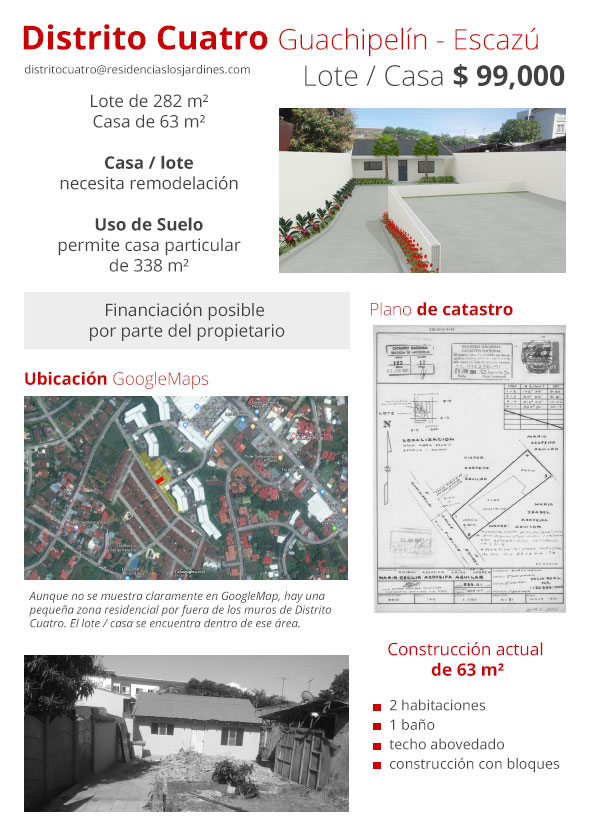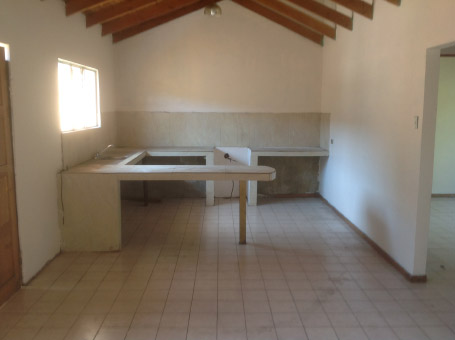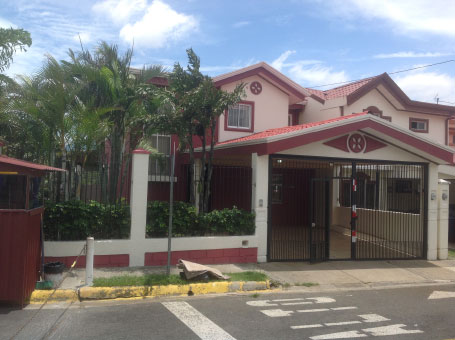Comments:
It almost looks like the new government is semi-serious about dealing with fiscal restraint. But we will have to see what happens in the face of stated union opposition... my observation over the past 18 years is that three strikes and the government crumbles.
Following is a summary of actions taken this week. The article is a memo to a few friends from an former well placed Citi Bank executive in Latin America who now lives in CR most of the time. He is pretty astute... Ready his comments below:
Subject:
Fiscal Deterioration of the Nation of CR
"Today, more than ever, the effort of each Costa Rican is required for fiscal sustainability to maintain the social contract that has given our country peace and prosperity," Aguilar said.
The minister's call to the presidents is to join "the efforts made by the Executive Branch to reduce and contain public spending" to alleviate the fiscal deficit, which according to projections could reach 7.1 percent of gross domestic product at the end of 2018.
(This level will happen anyway and will repeat in 2019 and 2020. The country at theses points likely would have runaway inflation pushing $ de nominated: goods-cars, food, gasoline, medical supplies to the highest costs in the Americas. Raising taxes also necessitates higher priced goods across the economy. At some point the country is no longer interesting for foreign investment. Mexican prices and wages are now about 1/2 of those in Costa Rica.)
The leaders of the supreme powers held a first meeting May 23 at the election tribunal when they expressed their agreement and commitment to adhere to the principles of austerity requested by the government.
Legislative leader Hidalgo said she would facilitate leadership through debate and consensus-building.
The government promised to implement a series of measures to reduce the expenses of the Executive Branch.
The measures put forward by the minister are aimed at specific actions to cut salaries, budgets, to halt growth in annuities, to cap new hires and reduce travel budget, which must also be complemented with the approval of the proposed Law for Strengthening of Public Finance by raising taxes.
(The public sector unions will not let their wages and benefits be limited. Also the hours and cycles of the public sector employees can not be modified without provoking a general strike.)
So gentlemen the country is screwed beyond hope. Forever.
Carlos Alvarado orders to renegotiate all collective agreements of the public sector
The President of the Republic, Carlos Alvarado, will order the renegotiation of all collective agreements to seek savings in the payment of salary benefits. This year, 15 of the 26 agreements in force in the public sector may be reviewed.
The President of the Republic, Carlos Alvarado, will order the renegotiation of all collective agreements of the public sector, that is, the agreements in which the institutions and the unions agree on the benefits.
This was announced on Wednesday by the Minister of Finance, Rocio Aguilar, before the plenary of the Congress to detail all the measures that the Executive Power will promote to stop the growth of public spending.
The measure is part of a package of administrative actions to force institutions to save, at a time when the Central Government faces a fiscal crisis due to the growing gap between its income and expenses.
"A directive will be issued that will force the renegotiation of collective agreements." In addition to the Ministry of Labor, it will be integrated into the Ministry of Finance in the Negotiations Committee, "Aguilar told the deputies.
On May 13, this newspaper published that 11 public institutions distributed ¢ 120,000 million for the salary bonus of the annuity to 26,800 employees, product of the collective agreements.
The annuity is a salary incentive that allows the official to accumulate an additional percentage of the base salary (between 1.9% and 2.5%, although there are entities that pay up to 5%) for each year worked.
Trade union guarantees and the application of disciplinary sanctions are among the matters that regulate collective agreements; as well as the assignment, calculation and payment of salary bonuses as exclusive dedication, availability and zoning, among others.
During this 2018, 15 of the 26 collective agreements that exist in the public sector may be renegotiated. Nine of these agreements have already been denounced or are already under negotiation.
Among the institutions that will open the opportunity to renegotiate the agreements are the Costa Rican Institute of Aqueducts and Sewers (AyA), the National Bank, the National Power and Light Company (CNFL), the Central Bank (BCCR), the Costa Rican Post Office , the National Press, the National Institute for Women (Inamu), the Rural Development Institute (Inder), the Cooperative Development Institute (Infocoop) and Bancrédito.
They also include the National Insurance Institute (INS), the Port Administration and Economic Development Board of the Atlantic Coast (Japdeva), the Ministry of Labor and the National Radio and Television System (Sinart).
To take the step towards renegotiation, it is necessary for entities or their employees to report them to the Ministry of Labor.
At this stage of the process, the conventions of the CNFL and the National Bank are already in place, for example.
One of the controversial components of the collective agreement of that bank is that its employees are granted an annuity of up to 20 years, when in most of the public and private sectors they are recognized for up to 8 years.
Agreements of other entities contain agreements such as working days inferior to those of the private sector, vacations of up to 30 working days a year, pension funds, and the payment of annuities up to three and four times greater than those of the Civil Service Regime.
In Japdeva, for example, product of the collective agreement employees are paid 25% of the additional salary to specialists in computing, an additional 30% for professional attachment, 30% more salary for height risk and 30% more for work availability.
By 2016, the government of Luis Gullermo Solís (2014-2018) had denounced 14 collective agreements and had yet to report another 12. The previous administration announced that in the case of the CNFL, the renegotiation of the collective agreement was achieved by lowering the cost in ¢ 7,000 million.
On the other hand, in the Costa Rican Petroleum Refinery (Recope) the convention will cost 5% more this year compared to 2017, due to the creation of a new salary bonus, as well as the increase in the payment of overtime and vacations, in benefit of 1,740 employees.
During his interpellation before the plenary of the Congress, which began on Wednesday and will end tomorrow, the Minister of Finance, Rocio Aguilar, did not specify either the term in which the Government intends to renegotiate the conventions, nor the savings in nominal terms that the State will receive.
See one by one the 11 government measures that will save ¢ 49,000 million in the first year
Cuts announced before the legislative plenary by Rocio Aguilar added ¢ 44,864 million in the areas of remunerations and places, and ¢ 4,141.6 million in modifications to the 2018 budget. Photo: Mayela López.
The Minister of Finance announced this Wednesday to the Legislative Assembly 11 measures that will save ¢ 48,926 million in the first year, as a commitment to austerity in search of a tax reform to save the country from an economic crisis.
For reference, each point of gross domestic product is equivalent to ¢ 350,000 million, and the fiscal deficit represents 6.2% of GDP. This cut is then equivalent to 0.14% of GDP.
Rocío Aguilar was emphatic in assuring the deputies that the actions she enumerated are those that the Government can exercise with its powers, and that, in order to achieve superior savings, additional decisions are required in the Legislative Assembly.
Aguilar divided the plan into two blocks of measures: decisions related to salaries and positions in the public sector, and those that modify this year's budget.
These are the provisions announced by the Presidential House and their respective savings:
1. Same salary adjustment for all public employees: ¢ 12,600 million
From now on, every semester, 100% of employees of the Central Government will receive an identical wage increase, regardless of the amount of their base salary, instead of a percentage increase on their salary. For the second semester of 2018, that amount will be ¢ 3,750. The adjustment will be calculated by applying the cost of living percentage to the lowest base salary.
2. Brake on growth in annuities: ¢ 8,264 million
Instead of granting annuities based on a percentage of the base salary to the officials, now the Government will fix that bonus based on a fixed amount, which will remain unchanged over time. According to Aguilar, this measure will save ¢ 8,264 million this year, but, in four years, the savings will be ¢ 96,000 million.
Hacienda expects that after four years, the measure will generate savings equivalent to 0.28% of GDP.
3. Freeze incentives for professional career: ¢ 1,500 million
It is a measure that ends with the practice of updating the amount of "points" that are paid to state employees for university degrees or the training they have received, although such academic degrees are requirements of the position for which they were hired. the worker.
In addition, for new employees the payment for the titles that are requirements for their position will be eliminated. According to the Presidency, after four years the savings will be ¢ 6,000 million.
4. Reduction of dedication and prohibition: ¢ 2,657 million
The Government decided to reduce the percentages of the base salary that it pays for exclusive dedication to the new professional officials and asks the deputies support to do the same with the incentive known as prohibition.
5. Top for the use of vacant places: ¢ 17,343 million
During the rest of the year, it will be possible to fill up to 25% of the 5,000 vacancies in the public sector, instead of the 50% expected by former President Luis Guillermo Solís. According to Aguilar, during the next few years we will try to work without the spreadsheet growing.
6. Brake to job reassignments: ¢ 2,500 million
According to the hierarch, only the movements of places that are in process, to the date of the directive that will instruct this measure, are excluded from the order.
Total savings in salaries and places: ¢ 44,864 million.
7. Reduction in extra hours budget: ¢ 3,295 million
The payment in overtime will be reduced by 50%. Aguilar promised that the measure will remain "under surveillance" during the rest of the government.
8. Reduction of advertising budget: ¢ 173.5 million
Trimming is equivalent to 30%. The Costa Rican Tourism Institute (ICT) is excluded from rethinking, although the Executive promised to be austere even in that portfolio.
9. Cut in budget for trips: ¢ 173.2 million
Reduction of 30% of the originally budgeted. Applies for expenses in tickets and per diem. It does not apply to officials of the Ministry of Foreign Trade (Comex), the ICT and the Foreign Ministry.
10. Cut-out for official and social events: ¢ 99.6 million
The reduction corresponds to 50% of what was budgeted by the previous government. Excluded, by the nature of their functions, the Presidential House and the Chancellery.
11. Cutting in consultancies: ¢ 320.7 million
Applies for social and economic services contracts. The reduction is 50% of what was originally budgeted.
Total savings in modifications to the 2018 budget: ¢ 4,141.6 million
President orders a salary decrease for general managers of all public banks
By A.M. Costa Rica staff
President Carlos Alvarado and the minister of Finance, Rocío Aguilar, issued an order Wednesday to reduce the salary of all the general managers of the state’s commercial banks.
The boards of the state’s commercial banks, Banco de Costa Rica and Banco Nacional as well as Banco Popular. were instructed to adjust the salary of general managers to that of the general manager of the Central Bank.
The monthly salary for the manager of the Central Bank is ¢9,541,569.70. Currently, the managers of public banking entities earn between ¢14.2 million and ¢16.7 million a month.
The public banks must apply measures as part of the austerity policies, just as the central government is doing to address the fiscal problem, explained Aguilar.
Tuesday the government issued an order that freezes the salaries of high-ranking officials, including the president, vice-presidents, ministers, deputy ministers and executive presidencies, managers and sub-managers of the decentralized sector.
Last week, Alvarado asked the leaders of the other three governmental branches to apply a policy of austerity in their budgets next year as part of a national call to face the fiscal deficit and avoid serious consequences for the country.
Wednesday afternoon, the minister of Finance, Rocío Aguilar, delivered a series of measures to halt public spending to the legislative plenary.
Finance minister delivers public spending cuts plan before legislators
By A.M. Costa Rica staff
The minister of Finance Rocío Aguilar, delivered a list of items to lawmakers Wednesday specifying where the Alvarado government will save money in order to reduce the fiscal deficit. The public spending cuts plan is the first request legislators made to the government during the discussion of fiscal reform.
Listed below, there are the most relevant actions of the plan.
Regarding salaries:
- The same fixed amount of salary increase will be decreed semiannually for each government official. It will be calculated as a result of applying the cost of living percentage to the lowest base salary. Impact: ¢12.6 billion, including social security contributions.
- As of Friday, the amount for each annuity will remain without growth. Impact: ¢96 billion, including social security contributions.
- A maximum of 25 percent of the vacancies can be used. Impact: ¢ 17.3 billion in the 2018 budget.
- New reassignments of posts will not be authorized. Impact: ¢ 2.5 billion.
- The institutions under budgetary authority but outside civil service will establish a single salary system in the case of new employees.
In regard to the 2018 budget:
- Reduction of extra hours by 50 percent. Impact: ¢ 3.3 billion in 2018, although the measure will be kept throughout the administration.
- Reduction of the advertising budget by 30 percent, except in the case of the Costa Rican Tourism Institute. Impact: ¢ 173.5 million in 2018.
- Reduction by 30 percent in expenses when traveling outside the country with the exception of the Ministry of Foreign Trade, Foreign Ministry and the Costa Rica Tourism Board: Impact: ¢173.2 million.
- Decrease of 50 percent in expenses for protocol and social activities, except Presidential House and the Foreign Ministry. Impact: ¢99.6 million.
- Reduction of the budget of economic and social services by 20 percent. Impact: ¢320.7 million.
In the budget for 2019
- ¢60 billion in surpluses will be used annually to pay debt.
Some other administrative actions:
- Administrative restructuring that implies an increase in expenses will not be authorized or will new rents be allowed.
- Work from home and the use of the digital signature will be encouraged.
- Renegotiation of collective bargains, where representatives of the Ministry of Finance will be included in the dialogue.
- The contribution of 200 luxury pensioners of the National Magisterium will be retained with an impact of ¢2 billion annually.
- Use of video-conferences for at least 15 percent of meetings, use of cloud computing solutions and agreements for the use of data centers with installed capacity.
Actions that will be sought from the legislature:
-To merge Banco de Crédito Agrícola with the Banco de Costa Rica, which would save ¢113 billion.
The minister said that the set of measures, in addition to the approval of the proposed tax plan and a public employment law that will take effect in two years, will reduce the financial deficit by 3 percent of the gross domestic product.
The actions proposed by the presidency will be carried out through guidelines, decrees and administrative processes. Some will also require new legislation.
The government said these measures will not represent a reduction of the nominal salary currently received by public officials. In the same way, it is promised that it will not affect social programs.
Aguilar pointed out that although the law to Strengthen Public Finances is insufficient to combat the fiscal deficit, its approval is essential, and other efforts along the same line can be carried out later.
In addition to the measures announced by the Finance minister, Rocío Aguilar, the presidency previously announced other steps such as the freezing of salary increases of the government and the reduction of the salaries of managers of state banks so they all equal ¢9.5 million.





.jpg)



.jpg)
.jpg)




















